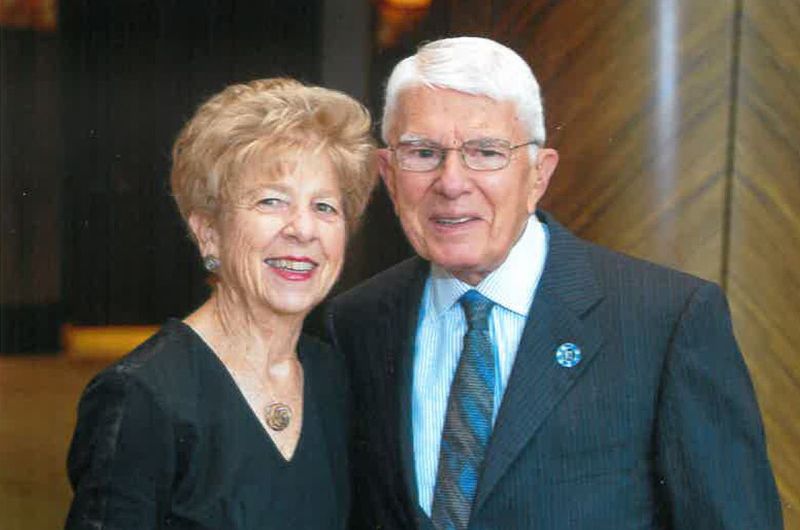By Clarissa-Jan Lim, A Plus
Houston, Texas, is a distinctly diverse city, home to one of the largest populations of refugees in the country. So it seems appropriate that nestled within the walls of Rice University in Houston is the Boniuk Institute, a prominent, ongoing effort to cultivate and promote religious tolerance.
Founded in 2013 with a generous gift from local philanthropists Dr. Milton and Laurie Boniuk, the institute's work takes a three-pronged approach: research, education and engagement in religious tolerance and understanding. The Boniuk Institute's overarching mission is to "nurture religious tolerance between people of all faiths and no faith, and also study conditions in which tolerance and intolerance flourish," Zahra Jamal, associate director of the institute, told A Plus.
Throughout the year, the Boniuk Institute organizes conferences, workshops and other projects to foster religious discourse in the local community and beyond. Though the focus is primarily centered on the Abrahamic religions, the institute also promotes seminars of religious perspectives outside of Judaism, Islam and Christianity.
And its work goes beyond the academic. According to Jamal, last year, the institute spearheaded several campus-wide donation campaigns to help refugees as well as hosted State Dept. Special Representative of Religion and Global Affairs, Dr. Shaun Casey, a member of Secretary Kerry's team, for a talk about the role religion plays in foreign policy.
The institute is directed by Dr. Boniuk's vision. His first philanthropic donation to Rice established the Boniuk Center, aimed at understanding and promoting "conditions conducive to sustainable, peaceful co-existence among people of different religions around the world." In 2013, Dr. Boniuk's second, substantial gift to the university expanded on that mission, and included the caveat that the institute would support the projects closest to his heart.
Born in Glace Bay, Nova Scotia, as one of five children, Dr. Boniuk later moved to the United States to pursue ophthalmology, a field in which he is still professionally involved. After coming upon a windfall of money from commercial real estate, the Boniuks decided to give back to the community.
Post-9/11, as the government increased surveillance efforts on its citizens and "see something, say something" became a national rallying cry that buoyed public paranoia, it was clear that something changed. While the U.S. was never quite known for being the gold standard of religious and cultural tolerance, rampant Islamophobia in the aftermath of 9/11 altered the lives of many Muslim Americans. As a Jew especially interested in the intersection between the Abrahamic religions, Dr. Boniuk resolved to invest his fortune into studying and rebuilding tolerance between faiths.
"In 2003, we decided to approach Rice University about trying to do something about religious intolerance because it was getting worse," he said in an interview. 10 years later, the Boniuk Center evolved into the Boniuk Institute, with loftier goals and larger ambitions. "I didn't want to repeat the same old things that people had done and weren't successful or really effective," he said.
Some of the institute's most far-reaching impact lies in its effort to promote religious dialogue beyond Rice's classrooms. The Boniuk Institute currently offers religious tolerance study guides for students and educators to help "facilitate research and education in these areas," Jamal said.
It is also developing a religion and music curriculum for middle and high school students. The program aims to use music and art as a common language for students to learn about religion, or, as Jamal explains it:
How it's oftentimes central to faith practice, and sort of an easier way to digest things that are similar and different about faith traditions.
The Boniuk Institute also has under its belt a religious literacy curriculum for Grades 6 to 12, which it currently is in the process of aligning it to Texas state standards. Jamal said that there's a "great deal of interest" in the curriculum from some of the largest public school districts in the country, in the Miami area and the Houston area, as well as abroad, from private schools throughout Africa and Asia.
In a time of sweeping anti-Semitism and Islamophobia striking fear in the hearts of minority communities, the push for religious understanding and acceptance could not be more urgent. On Nov. 15, the Southern Poverty Law Center released an alarming report detailing the hundreds of hate crimes that took place in the five days following the election. The incidents range from anti-Muslim to anti-black to anti-gay attacks, and they corroborate the personal accounts on social media that detail as much.
But those like Jamal, whose work at the Boniuk Institute is an antithesis of sorts to the troubling social climate, sees the yearning for greater understanding and empathy.
"You can tell that the hunger and thirst for this kind of content is really something important... Every day, you turn on the news and there's something related to religious conflict and intolerance," Jamal said. "The desire to learn, I think, is really evident."
Dr. Boniuk is a partner of A Plus' parent company, Chicken Soup for the Soul.

